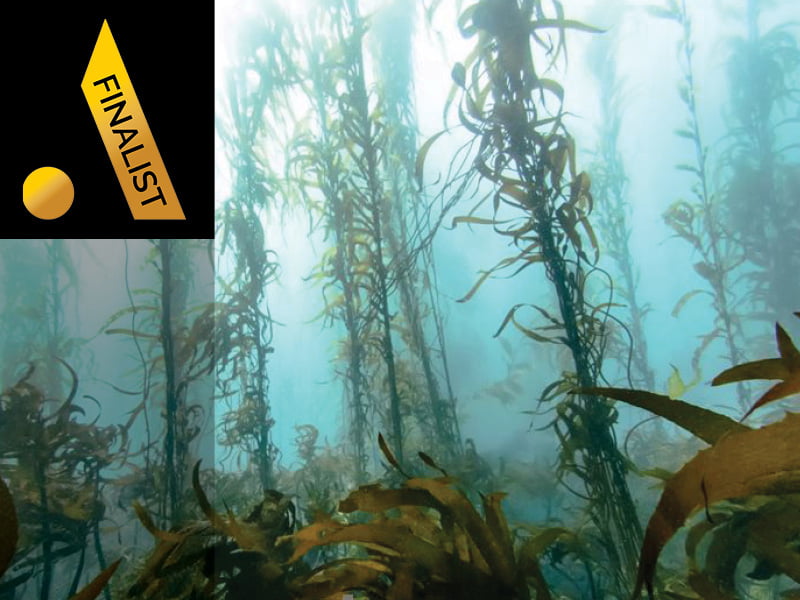Waving gently in the warming summer tides, eight to ten meters below the surface of the ocean, a vociferous pest species of leathery brown seaweed is preparing to release 600,000 spores.
Wakame will be familiar to anyone with an interest in Japanese cuisine as a vibrant shredded salad or the salty olive-coloured component of a miso soup, but the Undaria pinnatifida species is more than just a tasty snack.
Its cellular walls contain a compound called fucoidan that is used in medicines and beauty products around the world – and sells for up to A$12,000 a kilo.
“To put it into perspective, it takes around 300kg of seaweed to produce just 1kg of high-purity extract,” says Paul Garrott, chief executive and cofounder of Marinova.

Fucoidan is used in cancer treatment, has scientifically validated anti-viral properties and is a proven anti-inflammatory. There is also positive research into its efficacy in promoting gut health, as an anti-coagulant and even as a treatment to counteract diabetes
The compound is also highly sought after in the cosmetics and beauty product industry as an anti-aging treatment.
Wakame was first introduced into Tasmanian waters in the bilge water of woodchip vessels servicing the logging industry several decades ago. The species rapidly took root in the ideal coastal waters around the island state.
It was declared a pest by both the state and federal governments who put harvesting out to tender as a strategy for reducing a pest species that was taking over.
Mr Garrott, who prior to this was a partner with a Sydney-based accounting firm, won the tender with a view to processing the seaweed as a food product.
“We realised very early on that it wasn’t financially viable,” he explains. “We needed to find a high-value added opportunities and that lead us to establish relationships with research institutions and attracting scientists to the organisation.”
Despite the hard pivot, Mr Garrott credits good hiring practices and an ongoing strong investment in research with the success of the company to date. Marinova reinvests more than 20 per cent of its gross revenues back into R&D.
“A very large proportion of that investment is directed towards human clinical trials and validating the efficacy of our ingredient,” Mr Garrott said. “We also invest heavily in ecological advances and improving our manufacturing processes.”
Today, the family-owned business is a world leader in the production of fucoidan compounds. They use only sustainably harvested, wild, organic seaweed, free from the common pollutants that can contaminate farm-grown products produced in other parts of the world.
Additionally, the traditional extraction process used solvents to harvest the fucoidan, which contaminates the product. Marinova produces its products via a proprietary manufacturing process that ensures high levels of purity and does not require the use of any solvents.
In addition to harvesting in Tasmanian waters, the company also conducts harvests in the waters around Argentina – the only other location with organic stock and another area where wakame was unintentionally introduced and is considered a pest species.
Marinova also harvests the Fucus vesiculosus (known as bladderwrack seaweed) from the icy waters around Canada, primarily used for its anti-oxidant properties.
It was announced in June that Marinova was one of 68 industry partners committed to the new $270 million Marine Bioproducts Cooperative Research Centre, established to accelerate growth in the Australian marine bio industry over the next decade.
Marinova is a finalist in the Advanced Manufacturing category of the InnovationAus 2021 Awards for Excellence, sponsored by the Innovative Manufacturing CRC.
Do you know more? Contact James Riley via Email.
